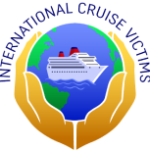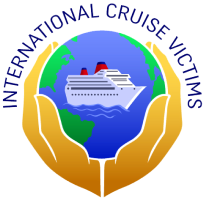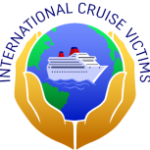
On Sept. 16, 2012, my daughter Ariel, then 21, and I embarked on a seven-day Caribbean cruise with Royal Caribbean. It was our first and last cruise — mine because I have no desire to sail on a cruise ship ever again, hers because she disappeared from the ship that same night.
She and I were sharing a cabin with balcony on Deck 11, as part of group tour of about 600 people. I remember that at the reception to observe the beginning of the cruise, several of the male employees who were serving drink asked her more than once to meet with them later. I believe that the cruise line regulations prohibit employees from mingling with passengers, and regret that I did not get their names.
The reception broke up around 6:30 p.m. My daughter and I then went to our cabin. Around 8 p.m. Ariel said she was going to the pool and I took a nap before my scheduled 8:30 dinner meeting with other members of our group.
Around 8:30 that night, I have learned, a member of our group whose name I wish to keep secret, and whose cabin was on deck 10, called the ship’s 911 emergency number. Sounding highly agitated, she reported that “something or someone” had fallen from a higher deck and had brushed her arm while falling.
Meanwhile, I was roused from my nap by the alarm clock about 8:30, and went to the pre-arranged dinner appointment. While I was eating, three security guards asked to speak with me. They took me to a secluded area, closed the door, but refused to tell me just what the problem was. They asked me to account for my whereabouts since I boarded the ship, and asked if my daughter was able to swim. At that point, of course, I realized that something had gone terribly wrong, although no formal announcement had yet been made.
I was asked to write out a statement, bur refused to do so. One of the security guards then wrote out a statement and insisted that I sign it. I was kept in that secluded area until they confirmed to me that my daughter had gone overboard. I became almost hysterical in view of their continued questioning, but was put in a wheelchair and kept in a room that was barred to visitors.
Not until about 11:30 did I hear them put out an emergency call. A search did not begin until about 1 a.m., which is when the Coast Guard later reported being contacted.
That same night, I was effectively forced to move to another cabin without a balcony, although the original fare was for a cabin with balcony. No refund was offered. The reason given to me for this move, which came despite my protests, was that they considered it risky for me to be in a cabin with a balcony.
For the final six days of the cruise, again despite my protests, I was confined to the new cabin. When I demanded to speak to the captain, I was given only his personal assistant.
Meanwhile, my original cabin was secured. This meant that I was not able to get access to any of my luggage or personal effects. I was allowed to buy clothing from onboard stores, but they kept the receipts. On the last day of the cruise, I was escorted off the ship, apart from the rest of my group, was assigned a different flight home, and was “accompanied” by a cruise Team Care member.
I was able to identify the crew members who — in violation of their terms of employment — asked my daughter to meet with them later. Unfortunately, neither the FBI nor anyone from the cruise line seemed at all interested in talking with them. The only person kept under wraps was me.
Two days after my daughter vanished, the ship made a stop at St. Thomas. I have since learned from other passengers in my group, who asked about me, that they were told I had left the ship and gone home.
My daughter and I paid for a cruise. She paid with her life, and I paid with solitary confinement and suffering that continues today. Had swift action been taken once the report of her disappearance was made, she might be with me today; she was, indeed, able to swim. Unfortunately for me and my family, keeping to a schedule seems to have been more important to Royal Caribbean.
By her Mother
Verae Marion


